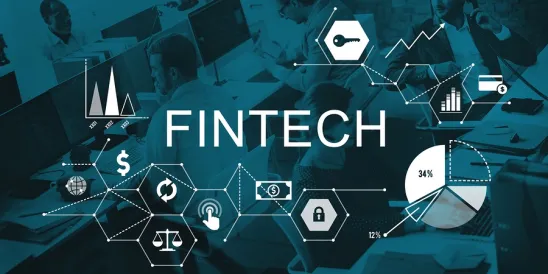A dark cloud is now hanging over the OCC’s decision to accept applications for special purpose national bank (SPNB) charters from fintech companies as a result of the opinion issued last week by a New York federal district court in the lawsuit filed by the New York Department of Financial Services (NYDFS) seeking to block the OCC’s issuance of the charters. In denying the OCC’s motion to dismiss, the court concluded not only that the NYDFS had established standing to sue and that its claims were ripe for decision, but also that the NYDFS had stated a claim under the Administrative Procedure Act (APA). In doing so, the court found that the term “business of banking” as used in the National Bank Act (NBA) “unambiguously requires receiving deposits as an aspect of the business.”
In its motion to dismiss, the OCC argued that the court lacked subject matter jurisdiction over the NYDFS’s claims because (1) the NYDFS cannot have standing to sue until the OCC approves an application for an SPNB charter because only then could the NYDFS suffer an injury in fact, and (2) the OCC had not yet received an application for an SPNB charter or granted a charter, thus making the matter not ripe for judicial review. The OCC also argued that the NYDFS’s claims were untimely because it can no longer challenge the OCC’s long-standing regulation (12 C.F.R. § 5.20(e)(1)) interpreting the term “business of banking” in the NBA.
The district court found that the NYDFS had demonstrated a substantial risk of harm that was sufficient to establish constitutional standing and that the NYDFS’s claims were ripe for adjudication because “the very narrowness of the question raised in this action supports answering it before a fintech company wastes its and the OCC’s time and money obtaining an SPNB charter.” With regard to the OCC’s argument that the NYDFS’ APA challenge was untimely because it was not brought within the six-year federal statute of limitations for APA claims, the court found that the statute of limitations “does not operate as a jurisdictional bar in this case” and that the OCC’s timeliness defense was likely defeated by the “reopening doctrine” which “permits courts to review recent agency action based on prior agency interpretations.”
While the standing, ripeness and limitations arguments are interesting, the primary significance of the decision is the aspect touching on the merits. Here, the OCC pointed to 12 C.F.R. § 520(e)(1), which contains a sentence that directly justifies the SPNB charter: “A special purpose bank that conducts activities other than fiduciary activities must conduct at least one of the following three core banking functions: Receiving deposits; paying checks; or lending money.” The OCC argued that the NYDFS’ complaint failed to state an APA claim because this regulation is entitled to deference under the U.S. Supreme Court’s 1984 decision Chevron U.S.A. Inc. v. National Resources Defense Council, Inc. According to the OCC, the regulation represents a reasonable interpretation of ambiguous language in the NBA.
In finding that the NYDFS had stated an APA claim, the district court rejected the OCC’s argument and instead concluded that the “business of banking” in the NBA, “read in the light of its plain language, history, and legislative context, unambiguously requires that, absent a statutory provision to the contrary, only depository institutions are eligible to receive national bank charters.” Having found the NBA’s text to be unambiguous, the court did not reach the second step of Chevron deference analysis under which a court considers whether an agency’s interpretation is reasonable and therefore entitled to judicial deference.
The court’s conclusion on this point strikes us as incorrect and outcome-oriented. We think it clear that the statutory reference to the “business of banking” is not “plain and unambiguous.” The court’s textual analysis started with a review of the powers of national banks under the NBA. The court failed to comment on the fact that the powers of national banks include “receiving deposits” and “loaning money on real and personal security” but do not give primacy to either of these powers over the other. The court also looked to dictionaries published just prior to the enactment of the NBA. All the court could say about these dictionaries was that their listing of bank powers with the word “and” rather than “or” somehow “implies that receiving deposits is not an optional alternative to the other listed activities.” However, the court conceding the existence of “some ambiguity on this point.”
The court also noted (1) that the NBA contains two references to deposit-taking in addition to the powers clause, (2) New York’s experience with banking at the time the NBA was enacted, (3) the fact that the NBA has never previously chartered a non-depository entity on the basis of the NBA’s “business of banking” clause, and (4) the fact that Congress expressly authorized non-depository national bank trust companies and bankers’ banks. It did not claim that these observations rendered the phrase “business of banking” unambiguous.
Rather, the court seemed to regard the OCC chartering of SPNB’s as national banks as tantamount to the “unheralded power to regulate a significant portion of the American economy”—a power the Supreme Court has greeted in the past with a “measure of skepticism.” The key passage of the opinion reads:
As one instance of the consequential effects of issuing SPNB charters to non-depository fintech companies, the Court notes that such action would entail federal preemption of the state banking regulatory scheme nationwide as it relates to such fintech entities. Such dramatic disruption of federal-state relationships in the banking industry occasioned by a federal regulatory agency lends weight to the argument that it represents exercise of authority that exceeds what Congress may have contemplated in passing the NBA.
Respectfully, this policy argument sheds little if any light on whether the “business of banking” unambiguously requires a bank to engage in deposit-taking activity.
It is hard to predict exactly where the case will go from here. In light of the importance of the issue and because the decision casts doubt on SPNB chartering, we would welcome a Second Circuit decision at the earliest opportunity. One option for the OCC would be to seek an interlocutory appeal. However, this would require consent of both the district court and the Second Circuit. Another option would be for the OCC to agree to entry of judgment on the pleadings in favor of the NYDFS. However, this might make it difficult for the OCC to contest some of the NYDFS’ allegations as to the consequences of SPNB chartering.
Another OCC motion to dismiss is currently pending in the lawsuit filed by the Conference of State Bank Supervisors (CSBS) in federal district court in D.C. to block the OCC from issuing SPNB charters. The OCC’s motion is based on arguments substantially similar to those it made in moving to dismiss the NYDFS’s lawsuit. (Last Friday, the CSBS filed the New York federal district court’s decision as supplemental authority.)
If nothing more, the New York decision makes clear that seeking an SPNB charter entails legal risk. Accordingly, companies in a position to do so may wish to consider other alternatives. One alternative is acquiring or forming a full service national bank or state bank, where ownership would be subject to the Bank Holding Company Act (BHCA). A second alternative is to charter or acquire an industrial bank under Utah law, where ownership would not be subject to the BHCA. A third alternative is to continue or revisit bank partnerships and address the risks created by the Madden decision and “true lender” issues. Risks inherent in these partnerships could (and should) be mitigated by careful structuring and, potentially, OCC or FDIC rulemaking.



 />i
/>i

